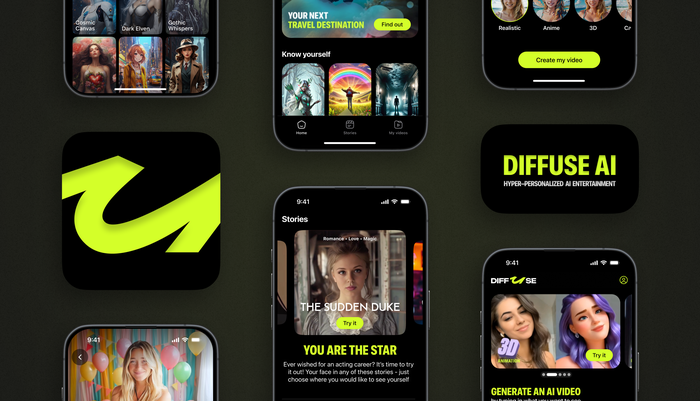The Prompt: How will generative AI affect knowledge work?

Philip Moyer
Global VP, AI & Business Solutions at Google Cloud
Business leaders are buzzing about generative AI. To help you keep up with this fast-moving, transformative topic, each week in “The Prompt,” we’ll bring you observations from our work with customers and partners, as well as the newest AI happenings at Google. In this edition, Philip Moyer, Global VP, AI & Business Solutions at Google Cloud, discusses ways generative AI may impact knowledge work.
A recurring theme in generative AI commentary is that knowledge workers may feel this technology’s disruptions particularly acutely.
For example, according to a recent McKinsey report, compared to other types of work, “generative AI has more impact on knowledge work with occupations that have higher wages and educational requirements.” This assessment is just one among many similar arguments, with observers continually asking how generative AI will change the work of writers, engineers, corporate strategists, attorneys, and even doctors.
It’s easy for these commentaries to steer into hyperbole, of course. Generative AI is an impressive but very young technology, so it’s a prime moment for hype to run a bit wild. If you’ve read the links embedded above, or followed AI trends on social media, you’ve surely seen different flavors of “automate everything” anxiety.
But using AI to automate or augment aspects of a job is quite different from automating the job wholesale.
For instance, earlier in this series, we discussed the New York attorney who made the mistake of treating a general purpose AI assistant more like a seasoned paralegal. As generative AI continues to become more prominent in knowledge work, the value of human expertise and skill doesn't go away—but how people apply their skills and expertise will surely evolve.
Focus on enhancing human workflows
We’ve already seen early indications of how these evolutions might play out. In one study that evaluated human agents using AI assistants in call centers, less experienced workers benefited more than their experienced peers, narrowing the productivity gap between less skilled and more skilled employees. It’s easy to imagine versions of this trend occurring in, say, repetitive writing tasks or coding exercises. Likewise, as industry-tailored generative models become more common and AI assistants grow more sophisticated, we’ll likely see an increase in the number of people who can complete domain-specific work without specialized training or credentials.
At the same time, it’s important not to get carried away. Generative AI can help an inexperienced writer turn a list of ideas into a coherent article, and with some skilled prompting and human revision, that article can still express a lot of personality and style. But an AI assistant is not going to replace skilled writers in the foreseeable future— though it might help many of them do their work more efficiently and happily. The same goes for skilled developers and the majority of other knowledge work domains.
Consider generative AI’s potential uses for generating social media content. An AI assistant can generate tons of potential posts. Many if not most will probably meet a basic threshold for “usable.” Some will be pretty clever and insightful, and some won’t be. At scale, it’s likely that none of them will be as effective as a skilled writer, especially since without expert prompting and revision, AI-generated text can become formulaic and repetitive over many outputs.
The goal shouldn’t be to automate social media production but rather to help humans brainstorm and iterate, synthesize various analytics and make them easy for humans to digest, speed up research, and otherwise make employees more productive. I’ve talked several times before about the importance of the human in the loop—and that common phrase almost undersells the issue. In use cases like this, it’s not about “looping” a human into an AI-enabled workflow so much as enhancing human workflows with AI.
For knowledge work, it’s often not about “looping” a human into an AI-enabled workflow so much as enhancing human workflows with AI.
Philip Moyer, Global VP, AI & Business Solutions, Google Cloud
Notes from the field
The preceding observations aren’t just mine—they’re shared by many of our customers. At our event earlier this month to announce general availability of Generative AI support on Vertex AI, we held several panels with executives from dozens of enterprises and organizations, including a session on the future of knowledge work.
Broadly, participants agreed that generalist support roles will likely become specialist roles. They noted that generative AI can handle many general needs and that generalist employees will be able to handle more specialized tasks when paired with AI assistance, nudging knowledge work as a whole up the expertise ladder. To this point, several panelists noted that generative AI can accelerate knowledge acquisition, not only speeding up onboarding and training, but also helping employees find the information they need thereafter in their day-to-day work. Customers at the event were enthusiastic about generative content applications, like drafting business documents or personalized emails for sales prospects, but many were more interested in using generative AI to facilitate information transfers among knowledge workers, less in automating knowledge work itself.
The conversation reinforced that enterprise search and internal knowledge management rank among the clearest generative AI use cases: they are powerful, offer clear paths to implementations, and let organizations become comfortable with generative AI before putting it front and center in customer experiences. And as the focus on knowledge management might suggest, panelists made clear they’re focused on empowering people rather than automating knowledge work.
One executive from a software firm opined that generative AI is not about losing jobs so much as automating mundane labor, evolving current jobs, and creating new ones. This was a common sentiment; several other attendees predicted new jobs will emerge thanks to generative AI, and they praised the technology’s potential to upskill current workers, helping them to focus on thoughtful work instead of repetitive drudgery.
Teamwork wins
Our experiences with customers reaffirm that for many knowledge work tasks, AI-empowered humans are likely to outperform AI alone or humans alone. Just because generative AI will impact a job doesn’t mean an AI app can do that job. Humans are still at the center, frequently able to work more productively and rewardingly with AI collaboration. To learn more about how we’re building human-centric AI collaboration into our products, check out the below video on Google Workspace from last month’s Google I/O and our announcement video for Duet AI for Google Cloud.





